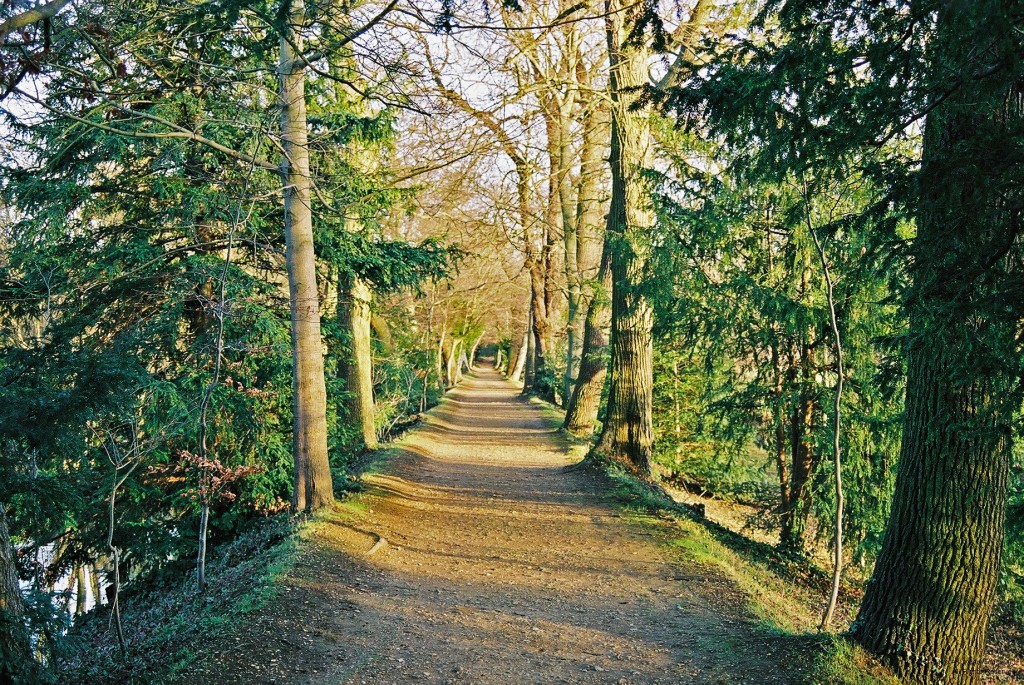C.S. Lewis and Nature
Carrie and her family saw a Narnia exhibit at a local science center recently, and she commented that she felt the “living green” emphasis was not true to Lewis’s writing. It went into the back of my mind, and I woke this morning thinking about Lewis and nature.
I agree with Carrie that Lewis doesn’t necessarily fit into the modern manifestation of conservation efforts. You never see him preaching about recycling or greenhouse gases. You never see him backing this or that conservation effort. There can be a sense in which present-day conservation efforts treat the visible world as the end-all, but though God loves this world that he made and intends to redeem Nature along with its fallen stewards, the Bible is clear on the fact that the visible is not all there is. It is one face on a world that is as spiritual as it is physical — a truth that Christians often fail as much as anyone else to take hold of.
But I think I would say, tentatively, that Lewis is a conservationist of sorts — a lover of the natural world who sees in our treatment of it evidence of our spiritual state. You can see this in the Narnia books. One of the most morally reprehensible things you can do in Narnia is to harness the talking trees and animals for your own use. The Calormenes do this in The Horse and His Boy, where Bree is a captive among the brutes so to speak. (Sort of Gulliverish, I notice as I’m writing this…) It’s there in The Silver Chair, where the giants eat a talking stag and the mere thought of it is so blasphemous it sickens Jill and Eustace. And you can see it in The Last Battle, where the Calormenes are felling the trees to sell. (It always reminds me of Lord of the Rings, where Sarumon fells trees for his orc-making laboratory.)
In Prince Caspian, the fallenness of the Telmarines, their essential “pirate” nature, can be seen in the way they treat the talking animals and trees. They think they’ve entirely subdued Nature except as something to be used. And the White Witch’s domination of Narnia in LWW is surely reflected in her control of the seasons. The consistent theme seems to be that “goodness” involves acknowledging the full scope of the wonder in creation; “badness” involves using it for personal power or material gain in a way that fails to acknowledge its created sanctity.
This is consistent with Lewis’s other writings too. I think of Miracles, where Lewis includes a lengthy discussion of Nature — part of which I quoted here because it knocked my socks off. Or That Hideous Strength, where the “National Institute for Controlled Experiments” has extended its scientific experimentation to torturing animals and using the disembodied brain of a criminal to dominate England. (It’s the return of Merlin, a symbol of the ancient understanding of a unified, animate nature, that begins the final judgment in that story.) Or even The Abolition of Man, where the “wireless” and the “aeroplane” and “contraception” are all discussed as ways of manipulating nature in ways that affect future generations.
These days, being a conservationist can carry a (perhaps unwanted) political or even philosophical set of allegiances. I don’t think we can put Lewis in that box. But I think he may well be a conservationist in the best sense — one who appreciates Nature as God’s creation, in which we’re made of the same raw materials and are given a fearful and wonderful stewardship. His isn’t the closed system of the materialist scientist. But it is the wonder-filled, knowledgeable understanding of a Nature he loved, frequently explored (his walking habits throughout the English countryside testify to this), and thought about consistently in his books.






5 Comments
Carrie, Reading to Know
Yes! That’s an excellent point! I’m so glad you took what I said and ran with it a bit because I think you make a very good point about Lewis. (I, too, was thinking about his love of walking while I was reading your post.)
I agree. I think he was a lover of Nature in the best sense – enjoying the beauty of the world that God created, enjoying and caring for it.
Carrie, Reading to Know
BTW, didn’t you review a book last year which focused on the creatures of Narnia. I was trying to remember the title but am coming up blank. What was that book?
Janet
Thanks for getting me thinking about it — I’ve had some thoughts bouncing around in my head on this subject for awhile but it’s good to finally sit down and write them out.
That book was ‘A Book of Narnians’ by James Riordan. My review is here: https://www.acrossthepage.net/2010/07/a-book-of-narnians/
BTW, I wasn’t sure if this counted as a Narnia Challenge post because I’m not really doing any new reading. But you can see how the challenge is having an effect on my thought life!
Amy @ Hope Is the Word
Enjoyed reading this, Janet. I’m still reading The Narnian on my Kindle and enjoying it greatly. :-)
Barbara H.
I think this is conservationism at its best and it gets lost today amidst the controversial and political aspects.